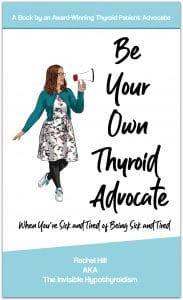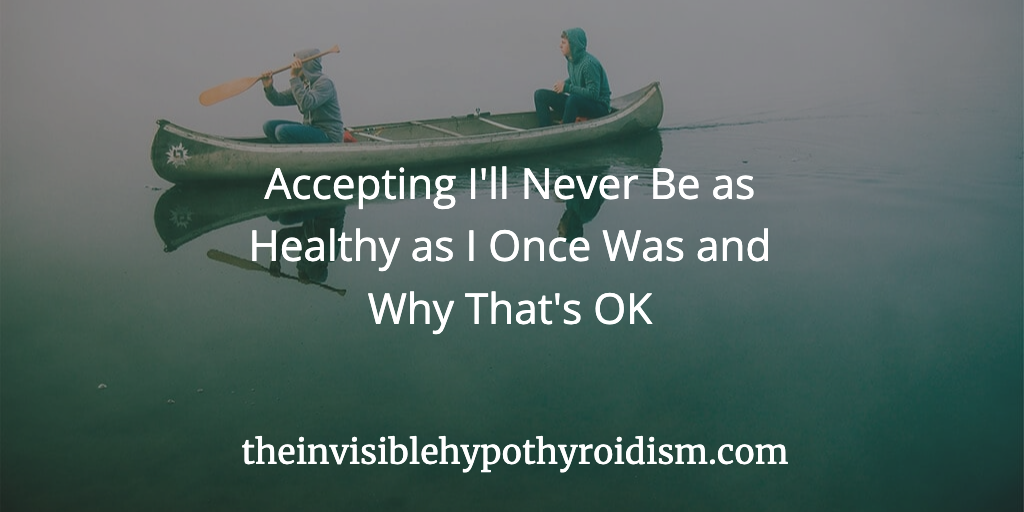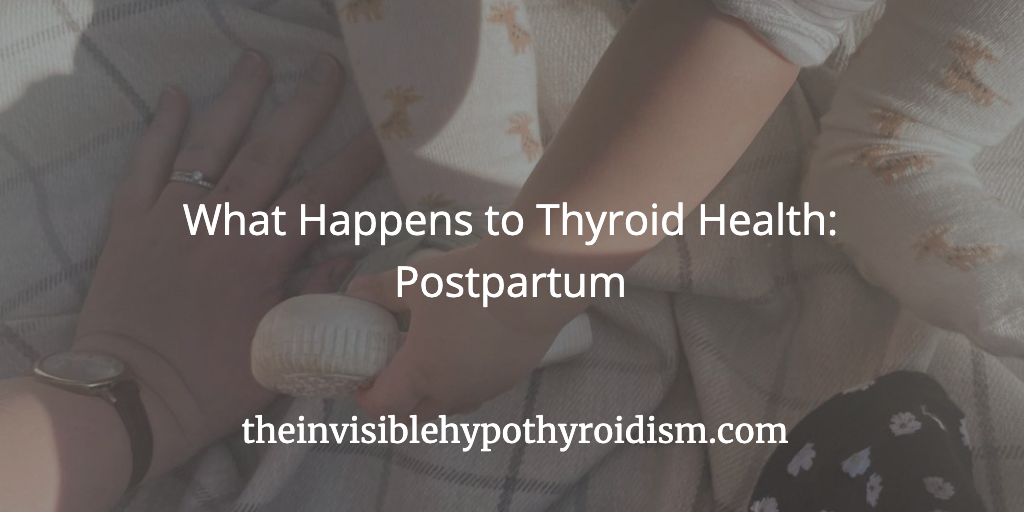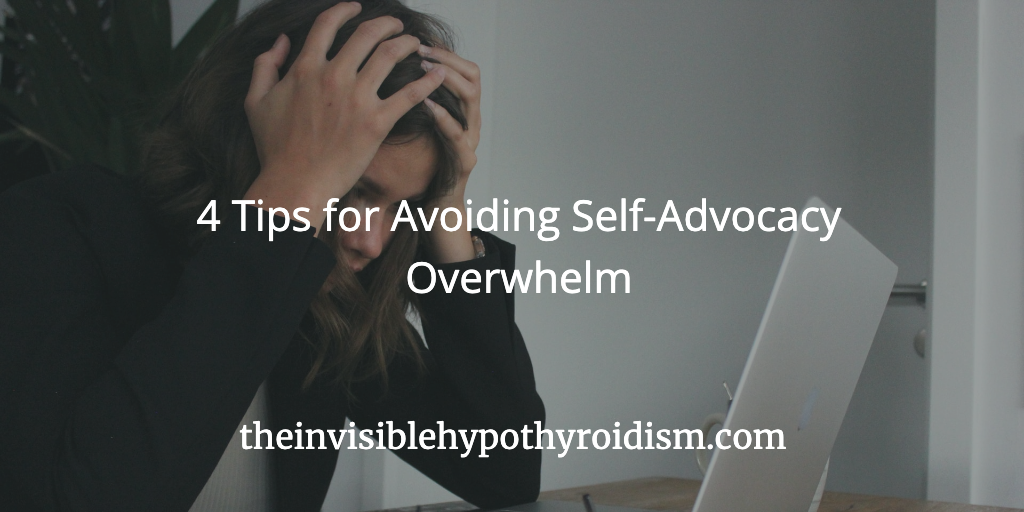Iʼd say the most commonly asked question when people are diagnosed with hypothyroidism and given medication for it is: “When will I feel back to normal again?ʼ
And as humans, weʼre terrible for making comparisons.
Comparing Ourselves
As ‘spoonies’, we often compare ourselves to non-chronically ill people, feeling as if we have to keep up with them and do all that they do.
We can also compare ourselves to other unwell people and have thoughts such as “They handle living with their health condition better than me.”
And, perhaps worst of all, we compare ourselves to an old version of us: “Old me used to be able to do this fine,” “Old me was better at keeping it together,” “Old me was more energetic, funny and happy… I miss the old me.”
It’s Essential to Grieve
What we go through when we shift from a regular, healthier life to a life of living with a health condition such as hypothyroidism, when we realise that we may never feel 100% ‘normalʼ again, is a period of grieving. I donʼt think itʼs unreasonable to say that most people who go from being a relatively healthy person to suddenly having a health condition, grieve. For some, they grieve for months, years or the rest of their lives, for the life that they used to have. Also often wondering what life they could have had, had they not gotten sick.
And whilst I’ve been in that grieving place, wondering ‘why me?ʼ, ‘this isnʼt fairʼ, ‘when will I feel all better againʼ, itʼs important to come to peace with the fact that you probably wonʼt ever feel exactly as healthy as you once did.
That person who could do whatever they wanted whenever they wanted, with little consequence and totally care free – they’re probably gone.
Moving On
But here me out, I’m not saying that you’ll be terribly ill for the rest of your life – the very point of The Invisible Hypothyroidism is to help other thyroid patients on their way back to living a better quality of life – but you must understand that the likeliness of being 100% exactly as you were before is low. Instead, you’ll learn to adjust and adapt to living a little differently yet still feeling fulfilled and healthy (hopefully – check out my resources on help with this!). But it won’t be exactly the same.
For example, my health is very good these days compared to when I was at my most ill with hypothyroidism, and my life is very full and active. But I still have to accept the changes that have got me here.
Accepting I’ll Never Be as Healthy as I Once Was and Why That’s OK
What I mean by this is accepting that the changes that have improved my quality of life with hypothyroidism and Hashimoto’s are permanent in order to maintain it. I will be gluten-free for the rest of my life, taking thyroid medication, eating as healthily as possible and having to manage my energy levels mindfully so as not to burn out or have a flare up. The definition ‘healthy’ has been redefined.
My health is very good these days but it’s not 100% like it was prior to my hypothyroidism days, as I won’t be able to go back to eating gluten, not taking thyroid medication and expelling energy without having to think about it at all. Doing those things will take me backwards in my health. I’ll never be ‘healthy enough’ that I don’t have to worry about constantly being on top of enforcing all these things to keep me as well as possible.
These are changes that I have to upkeep forever to stay on track to a good quality life. Do you see what I mean?
It doesn’t mean accepting always being ‘sick’ and giving in, but quite the opposite. It means learning that in order to get better and stay better, you have to accept the changes you need to implement long term. ‘Healthy’ takes on a new meaning.
Learning to accept your new life, itʼs limitations and the way everything has changed is liberating. Sure, you’ll need to adjust, adapt and learn how to do some things again, but you’ll figure it all out.
I spent the first part of my thyroid journey in denial, with the belief that I could put all these pieces back together and go back to being exactly as I was before my health took a turn for the worse, and there’s nothing more upsetting than failing at it time and time again. Because, soon enough, you realise your thyroid isn’t just magically going to work properly again. Instead of focusing on something you used to have and living in the past, I feel it’s more productive to focus on reaching a new version of yourself and embracing the changes to get there.
I’ve come a long way since being diagnosed with hypothyroidism and have thankfully made a lot of progress in how well I feel since then. In fact, Iʼm feeling the best mentally and physically I have done in years, but itʼs not come without accepting some things. Going gluten-free, enforcing an actual sleep routine and sticking to it, and learning how to better manage my energy levels and plan activities wisely, have all helped me make progress to get me here.
My life looks very different to how it did before I got sick.
Even though Iʼm feeling great these days, my life still looks very different.
I’ve made huge steps in my health and live a good quality of life, but that hasn’t come without make adjustments and learning to live differently. And most importantly, accepting them.
Fixating on the idea that your health will go straight back to how it once was when you’ve been diagnosed with a lifelong condition isnʼt realistic and youʼre only setting yourself up to feel disappointed and somewhat bitter. Learn to strive for better health but reinvent what ‘healthy’ means to you now. Your friend who is in the gym every day and running marathons has a different ‘healthy’ to you.
Accepting that you’ll never be quite as carefree in regards to your health as you once were, but striving for better health whilst aware of this, is OK and actually very necessary for your journey forward.
Work to improve your health and put the thyroid jigsaw pieces back together, but please don’t obsess over being 100% as you were before.
Have you felt a sense of grief since being diagnosed? Comment below.

The book Be Your Own Thyroid Advocate: When You’re Sick and Tired of Being Sick and Tired, which builds on this article in detail. Reclaim your thyroid healthy life and move on from grieving for your health.
***
Please remember that if you’re a thyroid patient living with poor mental health or lingering physical symptoms, that you don’t have to live this way. To address why you may still be feeling unwell (often despite being on thyroid medication too), please see this article and go through each suggestion, putting your thyroid jigsaw back together.
You can click on the hyperlinks in the above post to learn more and see references to information given.





